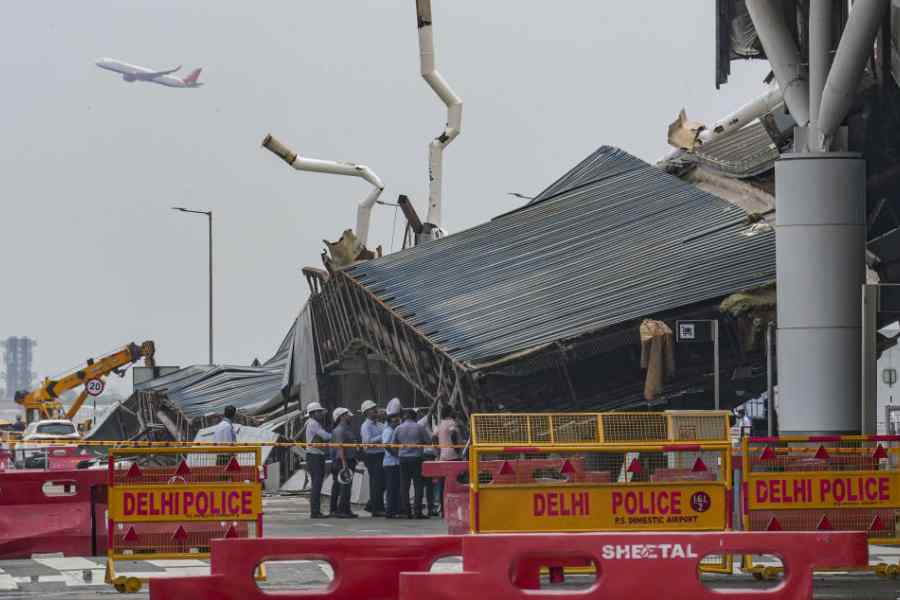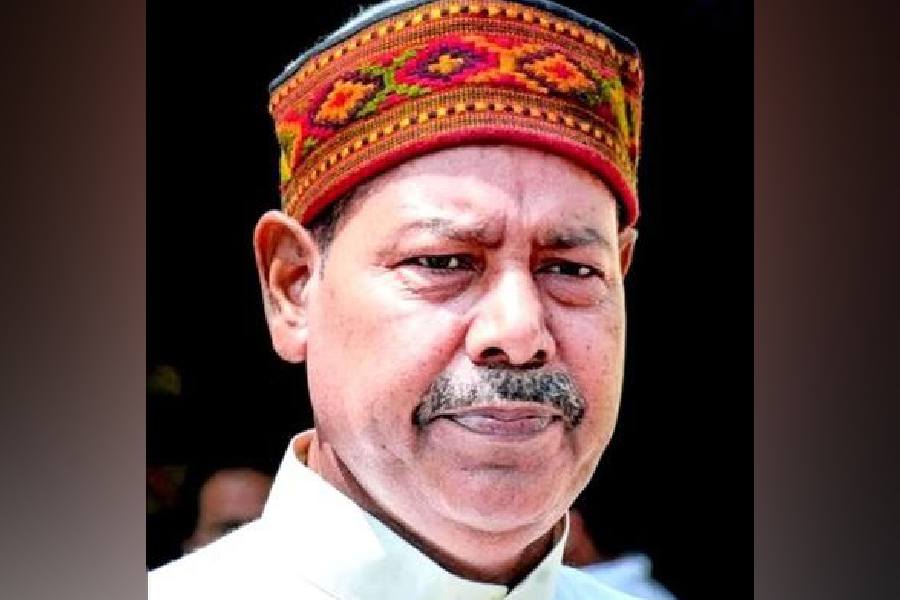It has only been three weeks since a section of a roof of Terminal 1 at the Delhi airport collapsed. But after the initial shock, coverage of the story has almost entirely disappeared from the news. One could substitute the Delhi airport collapse with the Rajkot airport canopy crash or the fire in an amusement park, also in Rajkot, or another fire that killed seven babies at a neonatal hospital in Delhi, all of which happened in the last two months. In each case, it would be the same story. Or, the same non-story. Public building collapses and fires happen as a matter of routine — an inquiry is ordered, the dead and the injured are given compensation ‘ex gratia’, a Latin phrase that very few understand, but which is trotted out when such incidents happen and, then, kaput. No one hears anything meaningful about the incident till it appears as a bullet point the next time there is such a collapse. The tragedy goes on.
But must it? Is the price of human life so cheap and the public so forgiving that unnecessary deaths, like that of the driver of the taxi at the Delhi airport, must continue? Admittedly, there is no magic bullet solution to the problem of unsafe public infrastructure. But equally, there are a few well-established factors that create a culture of safety. First, we must have the right set of rules and standards. Building approvals are based on the design of buildings, their construction quality, their fire-safety precautions, with periodic approvals needed if major changes are made. Some of these rules do exist in India, though not all. Our fire-safety standards, for example, are some of the most lax in the world. But even when they do exist, they are scarcely observed. Take the Delhi airport example — it appears that the approval for the airport did not factor in what would happen to the structure if the level of rain crossed a certain threshold. Since the total rainfall crossed the threshold, the canopy collapsed leading to the beam smashing into the cars which were waiting in the forecourt.
Now anyone who has witnessed the rains in Delhi this monsoon will know that it is a fraction of the rainfall in many other parts of the country. The fact that even a relatively small amount of rain could cause this damage points to a possible problem in the standards themselves — they are simply not robust enough to guarantee safety. The regulator that sets the standards for quality of airport buildings must bear responsibility for this omission.
But even if the standard were sound, the accident might still have happened. As Indians, we pride ourselves on jugaad, often extolling its virtues. Every accident like the Delhi airport collapse seems like the ugly face of jugaad. Although the facts will emerge only after the inquiry is complete, it may transpire that the airport operator received permission without actually meeting the criteria. Mallikarjun Kharge was quick to term this incident as evidence of “corruption”. If, indeed, this is the case, corruption of this kind passing off as jugaad should not come as a surprise.
At the same time, the truth may actually be somewhat more mundane. Neither was the operator corrupt, nor were the standards insufficient, but it was just that no one actually enforced the standards. If this were indeed true, this too should not surprise us. Lack of regulatory capacity is a core issue in Indian governance. Before passing laws and making rules, no assessment is made of the personnel, processes and money needed to enforce them. On top of that, regulation has recently been seen as a bad word in Indian governance, synonymous with ‘inspector raj’. But just because some inspectors are corrupt it does not mean that the idea of inspection, flowing from regulation, is bad in matters where public safety is involved. Preventing large-scale accidents of this nature is precisely why regulation exists. The political establishment must course-correct before slashing regulations in an effort to appear business-friendly. Good businesses don’t thrive in the absence of regulation; they thrive despite them or, if the regulations are sensible, because of them.
Second, there must be a culture of accountability in public institutions that goes right to the top. There was a reason why Lal Bahadur Shastri resigned as the railways minister after two bridge collapses in Mahbubnagar in Andhra Pradesh and Ariyalur in Tamil Nadu caused two train accidents, leading to the deaths of more than 300 people. If the principle of accountability is honoured by the minister, officers down the line would take the issue seriously. That act attempted to create a culture of organisational accountability.
But this culture cannot develop without active and sustained media engagement with an incident, putting pressure on the powers that be. A simple Google search will show that the last article on the Delhi airport roof collapse in mainstream Indian media was two weeks ago, in the immediate aftermath of the incident. Despite a prima facie case of negligence, no police case has been registered (to my knowledge), let alone any questioni of the leadership of the company that runs the Delhi airport being hauled up.
A vigilant media is needed to prevent such a situation from recurring. Unfortunately, business owners and governments know that if one can ride out the brief media storm full of sound and fury, a calm sea of indifference and nothingness awaits. Only when the CEO of a company under whose watch such an incident has happened is prosecuted will companies take safety issues seriously.
Ultimately, the Delhi airport collapse shows just how far we have to go before we have a political culture that truly cares about citizens’ lives. After the incident, the war of words between political parties was whether the structure that collapsed was part of the original structure built during the tenure of the United Progressive Alliance or whether the accident was owing to the prime minister, Narendra Modi, hurriedly inaugurating the extension of the terminal before the general election. At a time when a life was lost and several others severely injured, it was a pathetic reflection of the lack of civility in our public sphere.
This terminal decline of civility in public life will not be corrected overnight. But each of the pillars of the modern Indian nation-state — the media, the political establishment, the regulators and businesses — must do their jobs better, with greater concern and empathy, for the citizen, the user, and the ordinary Indian. Till that time, every such death that happens owing to faulty public infrastructure is not an accident — it is an act of institutional killing.
Arghya Sengupta is Research Director, Vidhi Centre for Legal Policy. Views are personal











